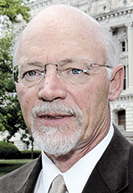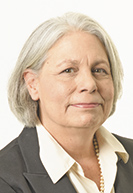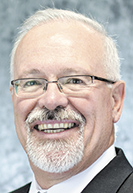Subscriber Benefit
As a subscriber you can listen to articles at work, in the car, or while you work out. Subscribe NowAfter spending much of the pretrial conference questioning the defense attorney about her caseload, ability to retain co-counsel and the expenses related to hiring an investigator and mitigation specialist, Marion Superior Judge Sheila Carlisle concluded by describing the situation taking place in her courtroom.
“This is uncharted territory,” she said.
 Brown
BrownThe stakes are high because the defendant, Jason Brown, is facing the death penalty for allegedly killing a police officer. But the twist comes from the accused, who is indigent, being represented by a private attorney who is doing the work pro bono. Carlisle was juggling the man’s right to choose his own counsel with the court’s concern not only over how much the county would have to pay for his defense, but also whether his lawyer would be able to handle the case from start to finish.
At risk is having to redo — and pay nearly $1 million for — the whole trial again if Brown is convicted and sentenced to death. The appeal would likely argue ineffective counsel and, should the Indiana Supreme Court agree, the guilty verdict could get overturned with the case getting sent back for retrial.
For now, State of Indiana v. Jason Dane Brown, 49G03-1708-MR-028177, is proceeding with the defendant’s counsel of choice, Denise Turner. She spent six years in the Marion County Public Defender Agency before leaving to start her own practice. While she has received training on representing clients facing the death penalty, she has never worked a capital murder case.
 Turner
TurnerTurner said this case came to her through an email that was forwarded from an investigator Brown’s family had contacted after his arrest. As she explained, the family did not want a public defender and was talking to another attorney. But the other lawyer, Turner said, was a former prosecutor with little experience handling major felony trials and who had not been doing criminal defense work for very long.
“So I was terrified that Jason’s case would go to someone inexperienced and only in it for the possible publicity,” Turner said. “So for the family, it wasn’t a question of me representing Jason or the case going to the public defender agency; it was the other attorney or me.”
An appeal withdrawn
Defense attorneys say private counsel representing a death penalty defendant is rare in Indiana. Public defenders typically defend individuals charged with capital crimes because of the cost of the case coupled with the demands of preparing for trial.
Until the beginning of 2018, the state had two death penalty cases represented by private counsel who needed to draw upon public funds to support their defenses. In addition to Turner, Fort Wayne attorney Nikos Nakos of Nakos & Adams was defending Marcus Dansby, who is accused of stabbing and shooting to death three adults and an unborn child.
 Landis
LandisLarry Landis, executive director of the Indiana Public Defender Council, said he empathizes with the dilemma judges confront in these cases. The bench has to weigh the defendant’s right to choose counsel against the ability of the attorney to provide representation.
The Fort Wayne case, State of Indiana V. Marcus D. Dansby, 02D06-1609-MR-000010, could have provided some guidance for resolving that dilemma. Allen Superior Judge Frances Gull removed Nakos at the beginning of the year and appointed two public defenders, Michelle Kraus and Robert Gevers II.
Kraus said Gull carefully laid out her reasons for replacing Nakos. The judge made a record, citing caselaw and the standards from the American Bar Association, as she detailed what private counsel had done and not done on the Dansby case.
Nakos disputed that he was not adequately representing his client. He claimed he had hired a mitigation expert but Gull, after she signed the order allowing the expense, wanted more documentation showing the expert was qualified. That individual got angry and quit.
When Nakos found another, he said Gull referred to his submission to the court as containing “stupid (stuff).” In January 2018, he filed a motion for the judge to recuse herself and soon after, Gull removed him from the case.
Once the public defenders were appointed, they filed a petition for an interlocutory appeal. Kraus explained the central question under the Sixth Amendment was whether the defendant’s right to an attorney of his own choice trumps his right to effective counsel. Although the trial court granted the petition, the public defenders decided not to proceed to the Indiana Supreme Court and withdrew the appeal.
Kraus said an appeal would have likely stayed the case for several months and the defendant wanted to keep things moving forward. The defense, she said, believes they have preserved the issue and, if needed after the trial, can revive the issue.
Although private counsel in death penalty cases is rare, Landis would still like to see the Indiana Supreme Court address the Sixth Amendment issue.
“At some point that dilemma needs to get resolved and it may ultimately get resolved in the Fort Wayne case if there is a trial and conviction,” he said. “If the verdict is appealed, that will be one of the appellate issues.”
 Watson
WatsonStill a gray area
Fran Watson, professor in the criminal defense and wrongful conviction clinics at Indiana University Robert H. McKinney School of Law, pointed to a recent ruling by the U.S. Supreme Court which could influence any subsequent decision by the Indiana justices.
The 6-3 decision in McCoy v. Louisiana held that a defendant has the right to choose the objective of the defense even if the attorney believes another strategy would avoid the death penalty. Watson sees this ruling as analogous to the Brown and Dansby cases. Following the Supreme Court’s reasoning, Brown and Dansby’s right to pick their attorney would outweigh their right to effective counsel.
Indiana Prosecuting Attorney Council executive director David Powell and Jim Oliver, IPAC deputy director for criminal law, speculated that even with a ruling from the Indiana Supreme Court, questions still would arise. The two offered insight into death penalty cases but emphasized they were only talking in general terms and not specifically about the Brown or Dansby cases.
 Powell
PowellThey agreed guidance about defendants’ rights in capital cases would be helpful, but attorneys and judges could still struggle even if the justices create a bright line. Every case has a different set of facts so, they said, gray areas will probably still exist.
No blank check
In the Brown pre-trial conference, Turner sat alone with her client at the defense table, surrounded by five sheriff’s deputies. At the other table, three prosecuting attorneys crowded together.
Carlisle pressed Turner. Among the judge’s concerns was that the defense attorney has not found co-counsel, currently was defending 49 felony cases, and did not seem to be adequately preparing. Turner said she is actively seeking another attorney to assist and that she is doing all things that need to be done. In addition, she told Carlisle that the bulk of her workload was manageable because most of her cases were Level 6 felonies and Brown was her only murder case.
The judge was also concerned about the cost. Carlisle reminded the attorney she would have to justify the expenses because there would be no blank check.
A county can get reimbursed for half the cost of the capital defense but, according to Landis, only if the attorneys meet the requirements outlined in Rule 24 of the Indiana Rules of Criminal Procedure. Turner does not meet the requirements in part because she has no experience with a capital case and because she currently is defending more than 20 open felony cases. So, Marion County might have to foot her entire bill.
An analysis done by the Legislative Services Agency in 2015 examined the cost of the eight death penalty cases that went to trial in Indiana between 1995 and 2013. The average cost of a capital murder trial was $789,581 with the state expenditures totaling $420,234 and the county expenditures reaching $369,347.
Turner acknowledged she is frustrated with the battles she feels she is having to fight to defend Brown. She said she understands that nobody wants the case to be reversed and sent back, but she worries that her client is not the center of everyone’s attention.
Nevertheless, knowing what she knows now, Turner said she would still take Brown’s case.
“If I felt like I was contributing to the community or to one person, I still would do it,” she said. “I believe that nothing great comes with ease.”•
Please enable JavaScript to view this content.
